Choking, Suffocation or Strangling offences in NSW
The offence of Choking found in section 37 of the Crimes Act 1900 (NSW) which deems a person guilty if they intentionally choke, suffocate or strangles another person without the other person’s consent.
What Actions Might Constitute an Offence of Choking, Suffocation, or Strangulation?
Holding a pillow or hand over someone’s mouth
This action is often done to prevent someone from yelling or calling for help, and can constitute suffocation.
Pinning a person by the neck with a forearm
Applying pressure to someone’s neck in this manner can restrict breathing and be considered choking or strangulation.
Choking someone
Directly compressing a person’s neck to impede breathing is a clear example of this offence.
Using a choke hold during a fight
Engaging in physical altercation and using a choke hold to subdue or harm someone can lead to charges of choking or strangulation.
Types of Offences
In New South Wales, there are three specific offences related to choking, suffocation, and strangulation.
Choking, Suffocating, or Strangling Without Consent
To be charged under Section 37(1A) of the Crimes Act 1900, the prosecution must prove that you:
- Intentionally choked, suffocated, or strangled another person
- Did so without the other person’s consent
Definition
According to case law, particularly the ruling in R v Green, an act of choking, suffocation, or strangulation must involve stopping the breath. Simply impeding or restricting breath does not meet the criteria. Unconsciousness is not required, just the act itself.
Intention
The prosecution must demonstrate that you intended to choke, suffocate, or strangle the other person.
Consent
If the act was consensual, no crime is committed under Section 37(1A). Lack of free and voluntary agreement indicates no consent.
Penalty
A guilty plea or verdict can result in up to 5 years imprisonment, depending on factors like plea timing, criminal history, and case specifics.
Choking, Suffocating, or Strangling Resulting in Unconsciousness
Section 37(1) addresses cases where the victim is rendered unconscious, insensible, or incapable of resistance. The prosecution must prove that you:
- Intentionally choked, suffocated, or strangled another person
- Caused the person to become unconscious, insensible, or incapable of resistance
- Acted recklessly regarding the outcome
Unconsciousness
The victim must be devoid of consciousness or unresponsive, or unable to resist due to the inflicted force.
Recklessness
You must have been aware of a substantial risk and acted unjustifiably despite that risk.
Penalty
A guilty plea or verdict can result in up to 10 years imprisonment, with sentence length varying based on multiple factors.
Choking, Suffocating, or Strangling with Intent to Commit Another Offence
Section 37(2) involves choking, suffocating, or strangling with the intention to commit another indictable offence. The prosecution must prove that you:
- Choked, suffocated, or strangled another person
- Caused the person to become unconscious, insensible, or incapable of resistance
- Intended to commit or assist in committing another indictable offence
Intention
This offence applies if the act was done to enable another indictable offence, such as murder, manslaughter, assault, or burglary.
Penalty
A guilty plea or verdict can result in up to 25 years imprisonment, with the sentence varying based on specific circumstances.
Which Court Will Hear Your Matter?
Choking, suffocation, and strangulation are indictable offences that may be initially heard in the Local Court. However, there are specific conditions under which the matter may be escalated:
Local Court
By default, these offences can be heard in the Local Court unless either the defence or the prosecution elects for the matter to be heard in the District Court on indictment. In the Local Court, the maximum penalty for these offences is two years imprisonment.
District Court
If either party elects for a higher level of judicial review, the matter will be heard in the District Court on indictment.
Charged with Choking, Strangulation or Suffocation in NSW? Contact Us Now For A Free Consulation!
Offences related to choking, suffocation, and strangulation are serious and carry significant penalties. The severity of the charge and potential punishment depends on factors such as intent, consent, the resulting condition of the victim, and any additional criminal intentions.
If you’re facing charges for choking, suffocation, or strangulation in NSW, it’s crucial to get expert legal advice immediately. Barsha Defence Lawyers specialize in handling these serious offences and can help you navigate the complexities of your case.
- Experienced Defence Lawyers: Protect your rights with our skilled legal team.
- Personalized Legal Strategy: Tailored defence plans to fit your unique situation.
- 24/7 Legal Support: We’re available around the clock to assist you.
Don’t Wait – Get the Legal Help You Need Now!
